International
Boys not girls more prone to psychological and physical abuse in sport: study

AFP
Three-quarters of children have faced abuse in sport and boys are more likely to be victims than girls, a study of more than 10,000 individuals in six European countries released on Saturday shows.
The most common form of abuse suffered by children taking part in sport outside of school was psychological, ranging from a lack of praise to humiliating treatment, the European Union-funded study shows.
Nearly two-thirds of those polled for the Child Abuse in Sport: European Statistics (CASES) study said they had suffered psychological abuse while 44 percent had experienced physical violence.
The report’s lead author, Professor Mike Hartill of Edge Hill University in England, said the findings show those who govern sport in Europe have done “too little” to safeguard children in sport and must do “far more than producing policy”.
“Our findings are obviously of great concern. We have seen a number of high-profile cases of child abuse in sport in recent times, but this research helps us to understand the scale of the problem more clearly,” Hartill said.
The study, led by Edge Hill University and the University of Wuppertal in Germany, questioned individuals aged between 18 and 30 who had taken part in sport when they were under 18.
The highest incidence of abuse was among children who had competed internationally — 84 percent at that level had experienced some form of abuse.
Hartill, a specialist in the sociology of sport, said the absence of praise or encouragement was often cited as a form of abuse.
“Withholding praise from children can be damaging. You can imagine that it could go from a mild occurrence to it being used as grooming for more serious abuse,” he said, speaking at a symposium to launch the study at the headquarters of World Athletics in Monaco.
total of 10,302 individuals were questioned in Austria, the Wallonia region of Belgium, Germany, Romania, Spain and Britain.
They were asked to complete an online questionnaire distributed by polling company Ipsos MORI, with interesting answers triggering further questions from researchers.
The highest prevalence of abuse was in Belgium at 80 percent while the lowest was in Austria (70 percent).
Across all countries, with the exception of Austria, boys were significantly more likely to experience violence.
– ‘Too little done’ –
Co-author Professor Bettina Rulofs said one finding in particular had surprised the researchers: “It is remarkable to have more males in the category of contact sexual violence than girls.”
The authors said the report showed that many sports bodies had failed to widen their policies beyond safeguards against sexual violence to take in psychological issues.
Hartill said: “Unfortunately, these findings indicate a sector that has done too little to address deep-rooted issues within sports.
“Those that govern sport in Europe must do far more than producing policy. The problem is ultimately rooted within the nature of the relationships between adults and children within sport.”
However, the report did find that the incidence of abuse in sport was lower than in wider society and it also noted that 85 percent of adults reported having a positive experience through sport as children.
International
Sheinbaum highlights anti-drug gains after U.S. says challenges remain
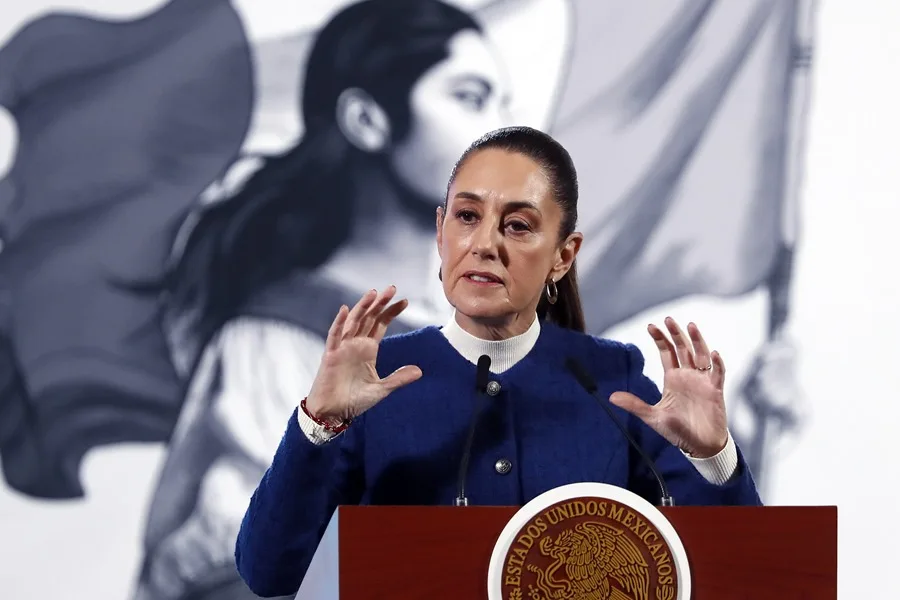
Mexican President Claudia Sheinbaum on Friday highlighted her government’s achievements in the fight against drug trafficking, after the United States said challenges remain in combating organized crime.
On Thursday, Mexican Foreign Minister Juan Ramón de la Fuente held talks with his U.S. counterpart, Secretary of State Marco Rubio. Following the meeting, the U.S. State Department said in a statement that “despite progress, challenges still exist” in addressing organized crime.
“There are very strong results from joint cooperation and from the work Mexico is doing: first, a 50% reduction in fentanyl seizures at the U.S. border,” Sheinbaum said during her regular morning press conference.
The president also said that authorities have seized nearly 320 tons of drugs and that there has been a “40% decrease in intentional homicides in Mexico” since the start of her administration on October 1, 2024.
Sheinbaum added that the United States should implement campaigns to reduce drug consumption within its territory and curb the flow of weapons into Mexico.
“There are many results and there will be more, but there must be mutual respect and shared responsibility, as well as respect for our sovereignties,” she said.
On Monday, Sheinbaum held a phone call with U.S. President Donald Trump to discuss security issues. She said she once again ruled out the presence of U.S. troops in Mexico to fight drug cartels.
Security has been a recurring issue used by Trump to threaten tariffs on Mexico and to pressure negotiations over the USMCA (T-MEC) free trade agreement, which are scheduled for 2026.
The agreement is crucial for Mexico’s economy, as about 80% of the country’s exports are destined for the United States.
International
Canada accuses Iran of killing its citizen during anti-government unrest
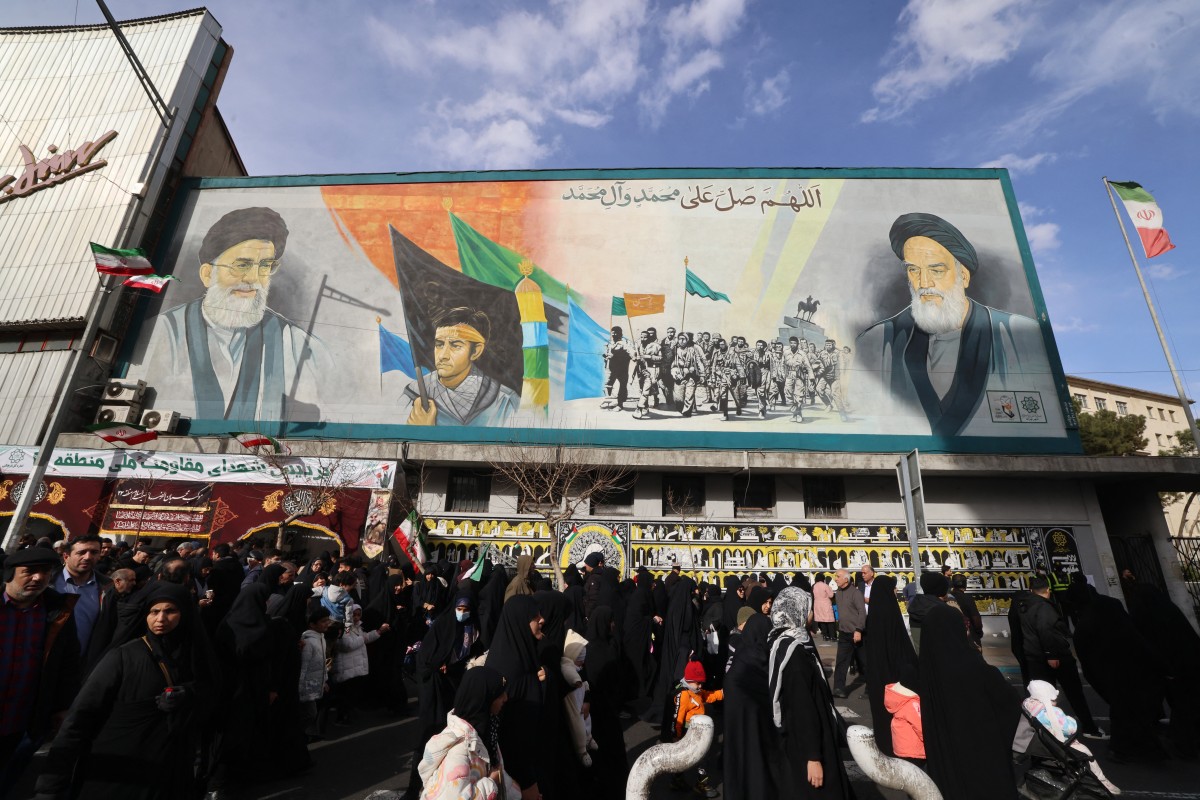
A Canadian citizen has died “at the hands of Iranian authorities,” the Canadian government said on Thursday, amid ongoing protests against the government in Tehran.
“I have just learned that a Canadian citizen has died in Iran at the hands of Iranian authorities,” Canada’s Minister of Foreign Affairs, Anita Anand, said, without providing further details. She added that Tehran’s response to what she described as “peaceful protests” has “led the regime to show a blatant disregard for human life.”
On Thursday, the United States imposed sanctions on Iranian security officials and individuals linked to the country’s banking networks, accusing them of orchestrating a violent crackdown on peaceful demonstrations and laundering billions of dollars in oil revenues. U.S. Treasury Secretary Scott Bessent announced the measures following what were described as the largest anti-government protests in the history of the Islamic Republic, although demonstrations have reportedly eased in recent days amid heavy repression and a near week-long internet shutdown.
“The United States stands firmly with the Iranian people in their pursuit of freedom and justice,” Bessent said in a statement, adding that the sanctions were imposed at the direction of President Donald Trump.
Those sanctioned include Ali Larijani, secretary of Iran’s Supreme National Security Council, whom Washington accused of coordinating the repression and the use of force against protesters.
International
Ukraine declares nationwide energy emergency amid russian attacks and extreme cold
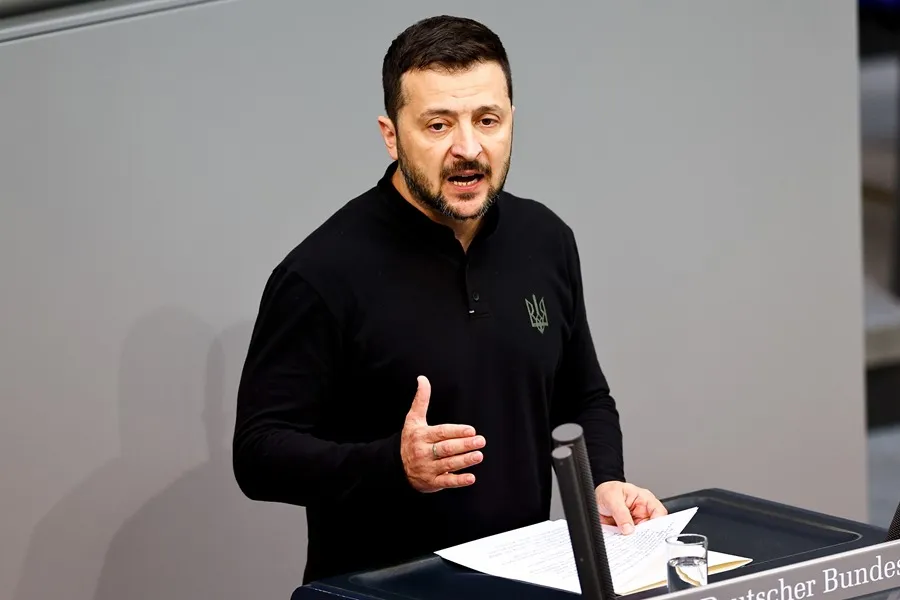
The Ukrainian government on Wednesday declared a nationwide energy state of emergency amid continued Russian military attacks and extreme winter weather, with nighttime temperatures dropping as low as minus 18 degrees Celsius.
“The consequences of Russian attacks and worsening weather conditions are severe (…) Overall, a state of emergency will be declared for Ukraine’s energy sector,” Ukrainian President Volodymyr Zelensky said in a statement posted on social media following a meeting with senior officials.
Zelensky announced the creation of a “permanent coordination headquarters” to manage the crisis in the capital, Kyiv, and tasked former defence minister and current energy chief Denys Shmyhal with overseeing support efforts for affected individuals and communities, including addressing power outages, heating shortages and other “practical issues.”
“There are many problems that require urgent solutions,” the president said, noting that repair crews, energy companies, municipal services and the State Emergency Service are working “around the clock” to restore electricity supplies. Kyiv has been particularly affected after Russian strikes last Friday disabled key parts of the power grid, as daytime temperatures hover around minus 12 degrees Celsius and plunge to minus 18 at night.
Zelensky added that public authorities will “maximize efforts with partners to obtain the necessary equipment and additional support,” while the government will ensure “maximum deregulation of all processes” to speed up the connection of backup power equipment to the grid. He also confirmed that work is underway to significantly increase electricity imports into Ukraine.
The Ukrainian leader further instructed his Cabinet to review curfew regulations in light of the extreme cold, arguing that citizens must have the greatest possible access to assistance centers, while businesses should be given flexibility to plan their operations according to the state of the energy system.
-

 International4 days ago
International4 days agoDeadly van accident near Brazil border leaves 11 dead in Bolivia
-

 International4 days ago
International4 days agoU.S. to host Danish and Greenlandic Foreign Ministers at the White House
-

 Central America4 days ago
Central America4 days agoU.S. and El Salvador maintain close partnership, embassy says
-

 Central America4 days ago
Central America4 days agoTaiwan’s $10 million donation after 2001 earthquakes allegedly diverted in El Salvador
-
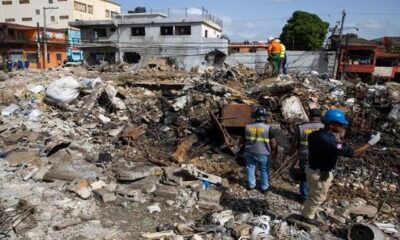
 International4 days ago
International4 days agoDominican court postpones hearing in deadly nightclub collapse case
-

 International4 days ago
International4 days agoPolice hunt gunmen after fatal shooting in Corsica
-
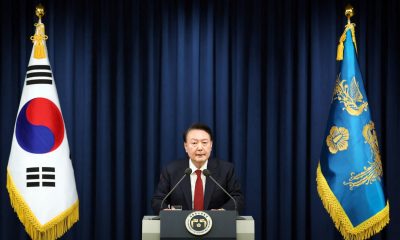
 International4 days ago
International4 days agoEx-President accused of bid to establish dictatorship as verdict nears in South Korea
-

 International4 days ago
International4 days agoVenezuelan opposition leader dedicates Nobel Prize to Trump
-
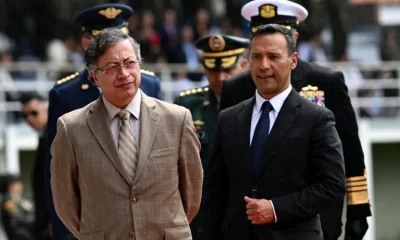
 International3 days ago
International3 days agoColombian Defense Chief Meets U.S. Officials to Advance Bilateral Narcotics Strategy
-

 International2 days ago
International2 days agoIran closes airspace amid U.S. threats and deadly nationwide protests
-

 International2 days ago
International2 days agoUkraine declares nationwide energy emergency amid russian attacks and extreme cold
-

 Central America2 days ago
Central America2 days agoBukele warns crime can become a ‘parallel government’ during visit to Costa Rica
-

 International3 days ago
International3 days agoPeruvian Court Orders Definitive Dismissal of Money Laundering Case Against Keiko Fujimori
-

 International2 days ago
International2 days agoX moves to block Grok from creating sexualized images of real people amid legal scrutiny
-

 International2 days ago
International2 days agoFrance joins Denmark’s ‘Operation Arctic Resistance’ in Greenland amid U.S. tensions
-
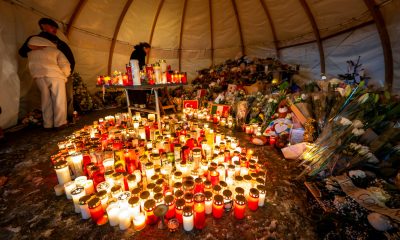
 International2 days ago
International2 days agoSwiss Canton of Valais Grants Emergency Aid to Victims of Crans-Montana Bar Tragedy
-

 International2 days ago
International2 days agoU.S.–Denmark tensions escalate as Trump pushes NATO to back U.S. claim on Greenland
-

 International2 days ago
International2 days agoUK Intelligence estimates russian casualties in Ukraine at over 1.2 million
-

 International2 days ago
International2 days agoU.S. to suspend visa processing for applicants from 75 countries
-

 International2 days ago
International2 days agoHillary Clinton skips Epstein inquiry as house panel threatens contempt charges
-
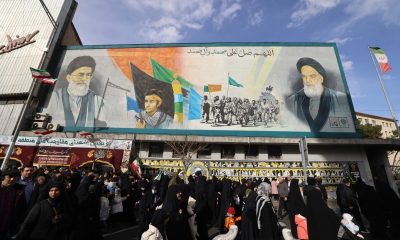
 International13 hours ago
International13 hours agoCanada accuses Iran of killing its citizen during anti-government unrest
-

 International13 hours ago
International13 hours agoSheinbaum highlights anti-drug gains after U.S. says challenges remain


























